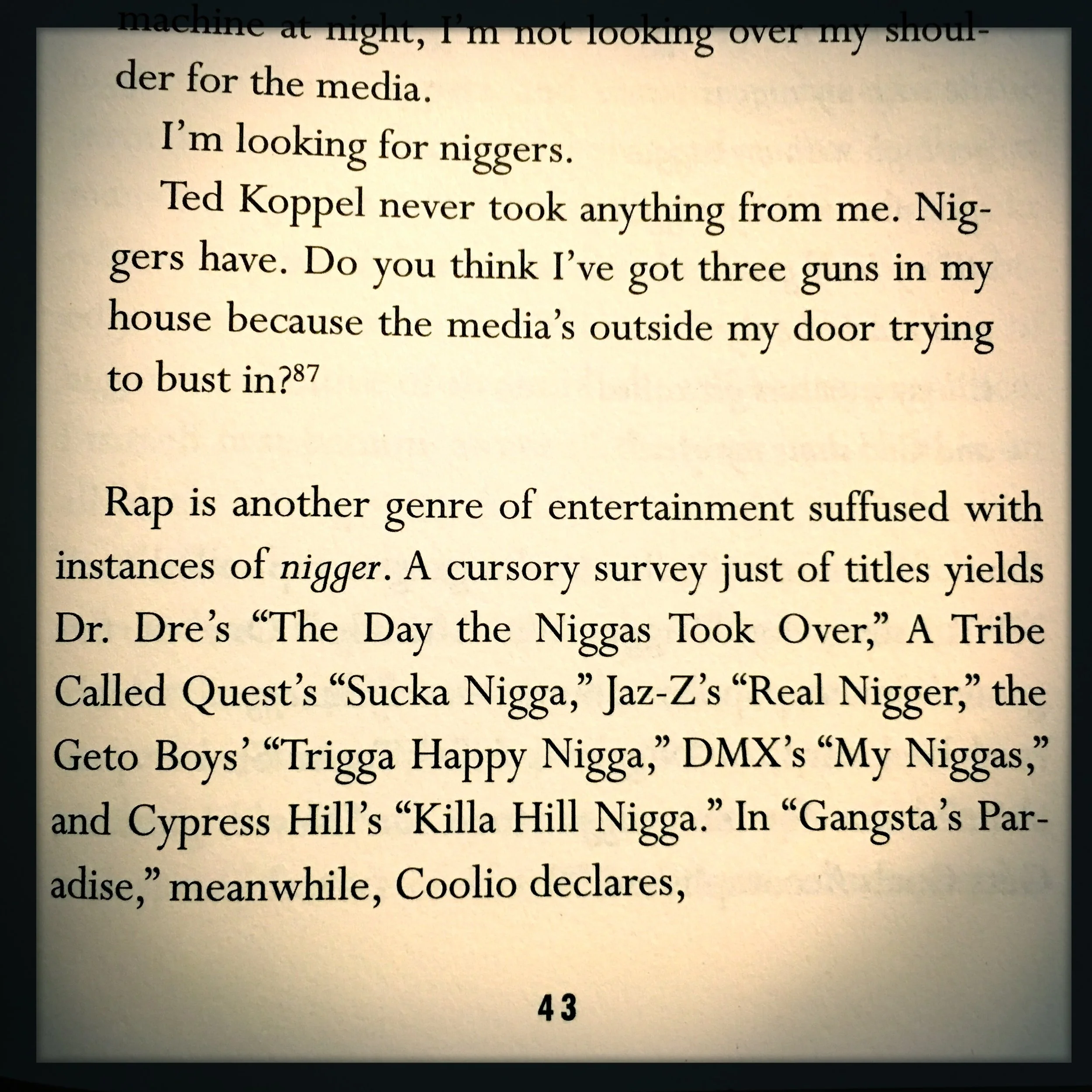Nigger: The Strange Career of a Troublesome Word by Randall Kennedy (Book Review)
Thanks for stopping by. Are you new to Black and Bookish? Please take a look around. These are the Books I've reviewed or you can Start Here to get an overview of who I am and what I do. Don't forget to subscribe to get news and posts sent straight to your inbox.
Congratulations on making it past the title of this post and into the review. That’s the first step, but I warn you, not the last time you will have to encounter the n-word. Nigger. There. I said it. But do you say it? Is it a part of your vocabulary? Do you embrace it as a phrase of respect for others, or disown it, a heavy word of the past? Or do you whisper it when you hear it in songs or read it in texts, speaking just loud enough for you to hear in your own head? Is it a verb or a noun? An adjective? (Take a moment and sit with these questions.)
In 2002, I received a book as a Christmas gift from some friends at school. That book was Nigger: The Strange Career of a Troublesome Word by Randall Kennedy. I can only imagine the horror my parents must have felt. What kind of friends did I have that would buy this? (They knew exactly what kind of friends- white friends.) At 17, I didn't understand the weight of this book, and never got around to reading it.
I finally got around to reading it.
At a short, 226 pages, Nigger is a difficult book to get through. I have a no-quitting policy when it comes to reading, so I trudged through it. It has four chapters, so I underestimated how long it would take to finish. It's small enough to fit in almost any bag, but I'm not sure how many people would appreciate its compact nature. It's not as if you would be reading this on the metro during your morning commute.
The first 50 pages were a challenge. I assumed reading about all the racism would be the hardest part; but in reality, it was harder to internalize the complexity of each example of litigation or discrimination the word revolved around. It's both fascinating and tedious. I loved all the historical context, but I became more fatigued with each additional case. I wasn't given enough time to mourn one example before he moved onto the next racist court case. It felt like Mr. Kennedy cited EVERY instance he could find this word used in context from its inception. I did not count the number of times, but let's just say it's high. He is a lawyer, so I assume he was just being thorough.
Kennedy spent 100 pages recounting the history of the n-word, but he didn't want it banned. Why? He didn't just talk about court cases centered on the use of the n-word to degrade or insult blacks. He spent an equal amount of time on examples where context was misunderstood. A white politician calling another group of white people the n-word. The definition Merriam-Webster used back in 1997. Books banned because they feature the n-word (Huckleberry Finn one of the most popular titles in this category). These types of incidents have led to more tone policing. No longer was the n-word an insult if said with malice intention; it wasn't an insult all the time.
“A diminished ability to stigmatize the word is another cost. As nigger is more widely disseminated and its complexity is more widely appreciated, censuring its use-even its use as an insult-will become more difficult.”
I was in the camp of "eradicationists", someone who would rather not see the word used in any context, regardless of context. It's a popular position to hold. But after understanding his larger point of tone policing and the damage that can be done by making it hate speech no matter the case, I had to step back from my own discomfort. The laws in this country do not have nuance built into them- that is up to the discretion of the judge and jury.
The good news is this: "... public opinion has effectively stigmatized nigger-as-insult," he states on page 172. And good news it is. Many people with malice intent will refrain from using the n-word unless they are desperate. Those who use it as a term of enderment will understand when they should.
I have held onto this book for 15 years, desperate to know its secrets. Although he presents facts and figures, I don't believe Kennedy succeeded in being impartial. He straddles the information, then tell you exactly what side to choose. As early as page 51, he says that the word isn't intrinsically bad- because of nuance, you need clarification of intention; later he clarifies that we should keep it anyway. In the end, I got what I-expected a long history of semantics.
*****
Did you "like" this post? Don't forget to comment below and share with others!
About The Author
Black & Bookish is the brainchild of Antoinette Scully, educator and lover of all things bookish. She is on a quest to guide the authors of tomorrow into the bookstores of today. When she's not hanging out on line, she's living it up as the mother of two rambunctious girls and wife of a local filmmaker.



